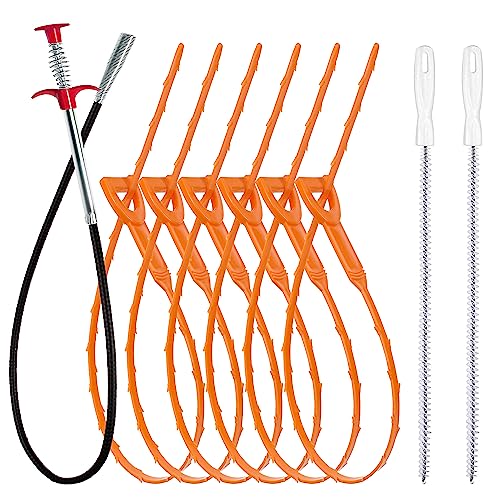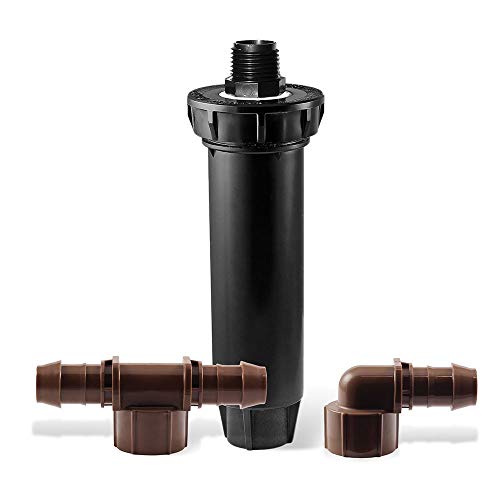Looking to replace 2001 Rudd 120 gallon tank. Rudd/Rheem were preference but told no product is available. A.O. Smith only. These will be under their “light commercial” division. I understand warranty is shorter but not an issue. Just looking for an easy transition from old to new. Any information on the no product availablity or the use of an A.O.Smith. Thoughts. Thxs.
You are using an out of date browser. It may not display this or other websites correctly.
You should upgrade or use an alternative browser.
You should upgrade or use an alternative browser.
120 gallon hot water heater
- Thread starter jmbaker3
- Start date

Help Support Plumbing Forums:
This site may earn a commission from merchant affiliate
links, including eBay, Amazon, and others.
Gas or electric ? I rarely use AO smith but it’s ok, they all leak at some point, I use Rheem usually.
Sorry, electric. The original Rudd is 20 years old. It’s been a good unit. House is 7500 square feet with 6 bathrooms and a circulating hot water pump. Never an issue getting hot water at any location. I can only assume the pandemic is creating a supply issue.Gas or electric ? I rarely use AO smith but it’s ok, they all leak at some point, I use Rheem usually.
Buy what you can get, no problem.
What Twowaxhack says! Also, my entire house is probably the size of one of your bathrooms! Good luck with your project!Sorry, electric. The original Rudd is 20 years old. It’s been a good unit. House is 7500 square feet with 6 bathrooms and a circulating hot water pump. Never an issue getting hot water at any location. I can only assume the pandemic is creating a supply issue.
Mitchell-DIY-Guy
Well-Known Member
HD has a Rheem 120 for delivery in a couple of weeks…if their website is accurate.
Unless space is an issue, have you considered 2-3 smaller units together? 3x40 residential units together are half the cost of the 120, plus you have the ability to turn off what you don’t need in case you don’t have a full house 100% of the time. (Almost all of the larger homes 3400 sq feet+ in my subdivision in Michigan had 2x50 gas water heaters.) The savings in cost over the 120 may pay for the extra installation cost.
I don’t want to see your electric bill.
Unless space is an issue, have you considered 2-3 smaller units together? 3x40 residential units together are half the cost of the 120, plus you have the ability to turn off what you don’t need in case you don’t have a full house 100% of the time. (Almost all of the larger homes 3400 sq feet+ in my subdivision in Michigan had 2x50 gas water heaters.) The savings in cost over the 120 may pay for the extra installation cost.
I don’t want to see your electric bill.

$26.45
$32.15
RIDGID 57003 EZ Change Plumbing Wrench Faucet Installation and Removal Tool
Amazon.com
Actually the house belongs to a friend of mine. I’d be happy with a 3 car garage and a room upstairs. ThxsWhat Twowaxhack says! Also, my entire house is probably the size of one of your bathrooms! Good luck with your project!
PerplexedPlumber
Well-Known Member
When we built our house two years ago, I used an on-demand water heater and a central water heater. Now would use multiple on-demand electric water heaters. 6, 10 or 20 gallon water heaters with 240V services and a fast recovery rate allow full recovery between showers. A 6-gallon one for the sink works well. The more distance to the services, the longer it takes for hot water to arrive, the more volume is lost in the system and the more energy is lost. A 10 or 20 gallon water heater located adjacent to a bath wall means instant hot water - no waiting, no turning on the shower and walking away.
Running additional 240V lines may not be an option, but if it is, I would consider breaking up the centrally heated volume. Even a small electric water heater that would fit in a cabinet as a booster would be an improvement.
Running additional 240V lines may not be an option, but if it is, I would consider breaking up the centrally heated volume. Even a small electric water heater that would fit in a cabinet as a booster would be an improvement.
Just for hoots, would you mind saying what you think it costs to heat the hot water, or even what monthly average is during non HVAC months (if you ever get them).Sorry, electric. The original Rudd is 20 years old. It’s been a good unit. House is 7500 square feet with 6 bathrooms and a circulating hot water pump. Never an issue getting hot water at any location. I can only assume the pandemic is creating a supply issue.
Mitchell-DIY-Guy
Well-Known Member
Just for hoots, would you mind saying what you think it costs to heat the hot water, or even what monthly average is during non HVAC months (if you ever get them).
Not hijacking your query to @jmbaker3 I do know that the EPA tags on electric vs gas water heaters sold here in NC are astounding in difference. A gas 50 gallon may be $240 annual cost, an electric about double. There's an alarming number of electric water heaters in my own subdivision here yet natural gas is available in each home. Many of them are in the attic. Thank goodness I have gas and it's in the garage...I'm told they (locals due to tradition?) don't like to use gas.
I like electric water heaters because the parts are basic and common.
Mitchell-DIY-Guy
Well-Known Member
Of course you do. They are easy to install as well. No venting required. They're cheaper. A builder's dream. From an operations standpoint, they are considerably more costly to run for the homeowner. In fact any kind of electrical resistance heat--baseboard, strip "emergency heaters" in a heat pump's air handler, a clothes dryer, a stove, oven or range, is considerably more costly to run on an annual basis than gas. If gas is available on a lot/in a home, economics would tell you that over a period of time your lowest cost will be with gas power on every appliance that can use it.I like electric water heaters because the parts are basic and common.
Now come back to me after this winter when they tell us gas prices are going through the roof and I may be singing a different tune. >wink<
Of course you do. They are easy to install as well. No venting required. They're cheaper. A builder's dream. From an operations standpoint, they are considerably more costly to run for the homeowner. In fact any kind of electrical resistance heat--baseboard, strip "emergency heaters" in a heat pump's air handler, a clothes dryer, a stove, oven or range, is considerably more costly to run on an annual basis than gas. If gas is available on a lot/in a home, economics would tell you that over a period of time your lowest cost will be with gas power on every appliance that can use it.
Now come back to me after this winter when they tell us gas prices are going through the roof and I may be singing a different tune. >wink<
I installed an electric water heater in my home. I pay the power bill.
I live in a warm climate, electricity prices are reasonable.
I have to have electricity in my home, I don’t have to have gas.
I have a rebuild kit that has 2 elements and two thermostats hanging beside it if needed. That’s about all that can go wrong with it other than the relief valve.
Even my wife could troubleshoot and repair my basic tank.
Mitchell-DIY-Guy
Well-Known Member
I have to have electricity too. And I'm darn happy there's gas here as well.
I have to have electricity too. And I'm darn happy there's gas here as well.
If you lived in a warm climate and electricity was reasonable you wouldn’t be so happy with gas.
I only use a heater about 2 months out of the year and that’s usually only at night. It’s an 16 seer heat pumps I think.
Incoming water temps run about 65-80 degrees. Most of the time above 70.
So while I may be paying a little more for electric heat and electric hot water, I’m not using much electricity to accomplish it.
My initial costs of equipment and maintenance is less......
No gas leaks to be concerned with and no chance of carbon monoxide exposure.
Last edited:










![MEISTERFAKTUR drain snake 2.0 [50 FT] - with drill attachment - Ideal plumbing snake for sink and drain unblocking - Solid drain auger for real DYIs! (50 FT - 1/4 inch)](https://m.media-amazon.com/images/I/41VwmTiOsgL._SL500_.jpg)

































